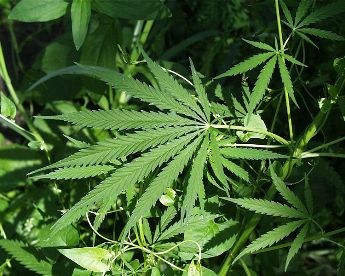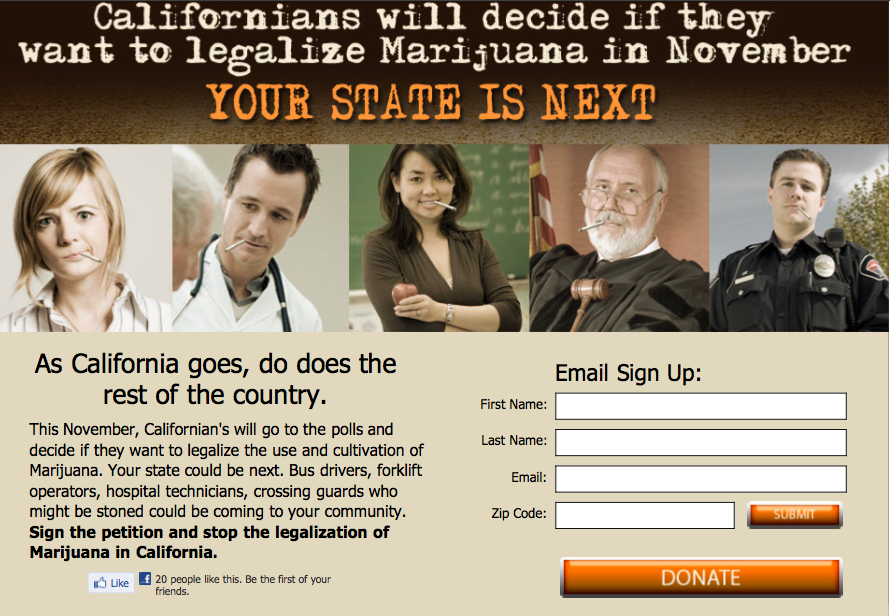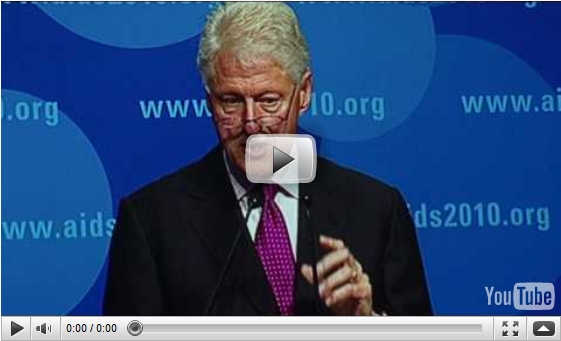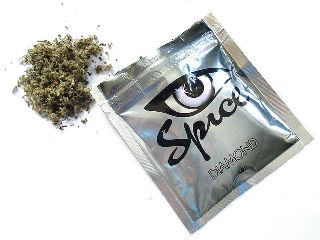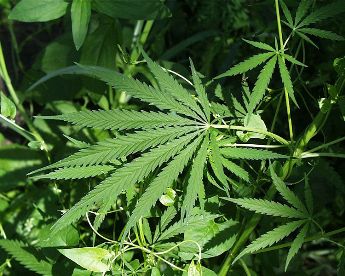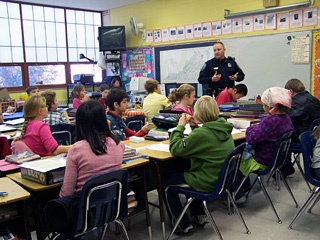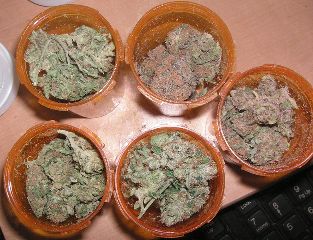BLOG
Strong Majority Believes Marijuana Could Become Legal Soon
A new Rasmussen poll finds 43% of American in favor of legalizing marijuana, with 42% opposed. But what really got my attention was this stat on attitudes about whether legalization is likely to happen:
Welcome to Our New Site
As you can see, we've made some changes around here, which we hope will make the site more enjoyable for everyone. We're still getting used to some of the new functionality, so please be patient if you see any little screw ups and let us know if you spot anything crazy.
Are Opponents of Marijuana Legalization Getting Dumber?
The opposition to Prop. 19 in California would like you to believe that marijuana rots your brain. So it's just a bit ironic that the people writing their slogans couldn't pass a 3rd grade English class.
Congress Reduces Crack/Powder Cocaine Sentencing Disparity
More big drug policy news from Congress in this last week before the recess: The House has at long last passed legislation, already adopted by the Senate, which will reduce crack cocaine sentences
Webb Criminal Justice Commission Passes House by Unanimous Consent
Big news from Washington today -- Senator Jim Webb's has just passed the US House of Representatives, by unanimous consent -- an important milestone that brings this important reevaluation of o
Awesome Police Chief Works to Educate Citizens About Their Rights
Here's Columbia, MO Police Chief Ken Burton talking about how he uses the new Flex Your Rights video, 10 Rules for Dealing with Police, to teach people about their rights during police encounters:
Pro-Legalization Cops Banned from Anti-Drug Event
There's something very seductive about police officers speaking out against the drug war and explaining how their experiences led them to oppose prohibition. Maybe that's why government officials don't want LEAP represented at an upcoming conference on substance abuse:
Bill Clinton Calls for Harm Reduction
Three new videos from the Hungarian Civil Liberties Union, filmed at the Vienna AIDS 2010 conference this month. In one of them, former US President Bill Clinton calls for harm reduction, an approach to substance misuse and other social issues of which the most well-known example is needle exchange programs.
It could be a lot worse
Sometimes I get so frustrated at the way the governments,federal and provincial(state in US)are poking their noses into every thing we do and say.We live in a world that is increasingly more contro
Brain Surgery
Putting the criminal justice system in charge of treating drug addiction is literally attempting to do brain surgery with a billy club. ==== My own idea. Pass it on.
Jane Hamsher Talks Marijuana Legalization on MSNBC
Hey, watch this unbelievable video of firedoglake's Jane Hamsher hurling marijuana legalization like a hand grenade into the middle of the immigration debate: …and everyone just nods in stunned agreement. Correct me if I'm wrong, but I sure haven't seen much coverage of marijuana policy on MSNBC recently, if ever. Is it necessary to tell them you'll be discussing immigration in order to get some airtime for legalization on the most left-leaning cable news network? It's time to stop labeling marijuana reform as a liberal issue when FOX News has two pundits talking about it constantly, and MSNBC's got nothing to say.
Ecstasy found to Help Alleviate PTSD among Military Veterans
Researchers are gaining ground in the combat against posttraumatic stress disorder (PTSD) in an unlikely way. Touted as “the party drug,” ecstasy, or MDMA, may just be the saving grace for hundreds of thousands of veterans suffering from PTSD. According to a study by the Rand Corporation, in 2008 one in five soldiers returning home from Afghanistan or Iraq showed symptoms of PTSD. All in all, nearly 300,000 returning soldiers were affected. Letting individuals with PTSD go untreated is detrimental to both the individual and to society as a whole, as it has been linked to higher incidences of depression, health issues, violence, marital problems, drug use, unemployment, homelessness and suicide among veterans. And although each active military service member is provided with $400,000 in military life insurance coverage, that provides little comfort to families of a PTSD-afflicted veterans.
Diane Feinstein Wants to Continue Arresting Marijuana Users, and Other News
Paul Armentano calls out California Senator Diane Feinstein for opposing marijuana legalization and points out the flagrant dishonesty of her attack against Prop. 19. [image:1 align:left caption:true] Valerie Vande Panne has an excellent piece in the Boston Phoenix on the rising popularity of synthetic marijuana products. This is some of the most thorough coverage I've seen on the issue. A must-read if you're following the Spice/K2 controversy. Mark Kleiman says California can't legalize marijuana. Pete Guither says yes, it can. Marijuana policy groups have issued a unified statement opposing Michele Leonhart's nomination to head the DEA. She embodies everything that's wrong with U.S. drug policy, and Obama's nomination makes a mockery of all the "new approach" rhetoric we've heard from his administration. "The U.S. State Department has no effective way to measure the success of its billion-dollar program to help Mexico and Central America fight drug traffickers," according to a new report from the GAO. Well yeah, it's hard to measure success when you haven't had any. Sounds to me like the problem isn’t that success is hard to measure, but rather that failure is hard to admit.
How to Get Arrested for Marijuana in One Easy Step
[image:1 align:right caption:true]If you'd like to get arrested for marijuana, just tell a police officer that you have some in your car: The officer pulled Vento over at entrance 13 to Interstate 95. While talking to Vento, he appeared nervous, according to police. When asked why, Vento said he had been arrested in the past on drug charges, police said. The officer then asked if there was anything illegal in the car. Vento said he had a marijuana blunt. Upon searching the car, police found two more blunts. All three tested positive for marijuana. Police also found a bag with a small amount of marijuana. Vento posted a $250 bond and was released with a Monday, July 26, court date. [Darien Times] As you can see, the police don't "go easier on you" just because you made things easier for them. If you admit to a crime, you'll be arrested for it. The constitution protects you against self-incrimination and unreasonable searches, so don't confess and never give police permission to search you or your belongings. If you need more info on your rights during police encounters, watch 10 Rules for Dealing with Police. Then watch it again.
Oakland Okays Mega-Pot Farms
At about 11:15 Pacific time Tuesday night, the Oakland City Council passed an ordinance that would allow for four permitted industrial-scale medical marijuana cultivation facilities. In response to widespread concerns among the medical marijuana community, it also vowed to work on permitting medium-sized grows in the fall and to defer any crackdown on medium-sized grows until after the first large-scale permits are issued in January. Patients can still grow up to 32 square feet and to three-person collectives can still grow up to 96 square feet without permits. Look for a Chronicle feature story on this historic vote to be posted in the morning.
The New Politics of Marijuana Reform
MPP's Mike Meno nails it in this piece at Huffington Post. It's almost as if he's been reading my mind (or my blog). He's got some more great examples of how the surging marijuana policy debate is shaking up party politics this election season. Anyone who still doesn't understand that marijuana is no longer a third-rail political issue is in for some big surprises in the coming years, and possibly as soon as November.
Former Pain Prisoner Appearing on Penn & Teller "Bullshit" This Week
We are told that Richard Paey, the disabled Florida pain patient pardoned by Gov. Charlie Crist in 2007 after prosecutors twisted his attempts to obtain adequate opiate pain medication into drug dealing charges incurring a 25-year mandatory sentence, was interviewed for the upcoming Penn & Teller "Bullshit!" episode, "Criminal Justice." Showtime describes the "Criminal Justice" episode as follows: Is America's criminal justice system weighed down with bad science, ineffective methods, incompetence and corruption? Penn & Teller set out to reveal that the only thing scarier than crime is America's war on crime. "Criminal Justice" will start airing this Thursday at 10:00pm. In the meanwhile, you can read more about Richard Paey in our archive, at the Pain Relief Network or in the 2006 Sixty Minutes episode, "Prisoner of Pain."
DARE Attacks Marijuana Legalization While Praising Alcohol
[image:1 align:left caption:true]Skip Miller is the chairman of DARE America and, as you might guess, he's terrified of what could happen if marijuana becomes legal: Do we really want to make it easier to get stoned? Cut through the smoke and that's really what California voters will be deciding in November with Proposition 19, which would make this the only state to fully legalize marijuana — a drug with proven negative health consequences. … The concern with marijuana is not based on my personal disapproval or bias but upon what science tells us about the drug's effects. The science is clear: Marijuana is associated with physical and mental illness, poor motor performance and cognitive impairment. [San Jose Mercury News] So according to Skip Miller, science compels us to keep marijuana illegal. Yet, as SAFER points out, his website takes a very different tone when it comes to alcohol: Take a minute and think how often adults drink alcohol: a cold beer at a baseball game, a glass of Chardonnay with a piece of broiled fish, a gin and tonic on a warm day. Social drinking is an acceptable and pleasurable activity for millions of Americans. It relaxes you, curbs stress, and chases away inhibitions… [DARE.org] Wait, what!? Although the statement goes on to acknowledge the problems associated with alcohol abuse, there's no question that DARE is going out of its way to defend recreational drinking. And I agree with every word. Teaching young people that there's nothing wrong with responsible drinking is important, even though I find it ridiculously weird that DARE, of all places, would seek to do that. All of this just serves to highlight the mind-blowing prejudice and hypocrisy that underscores DARE's position on marijuana policy. If alcohol can be enjoyed responsibly by millions of adults, despite all the mayhem associated with it, then of course the same must be true of marijuana. On the other hand, if the potential for negative outcomes trumps the rights of responsible users, then why on earth is DARE applauding "acceptable and pleasurable" alcohol instead of insisting that science compels us to start arresting people for possessing it? When pressed, the architects of this brainless disparity typically resort to some desperate nonsense about alcohol being accepted and familiar in our culture, as though marijuana just arrived on a boat sometime last year. These same idiots actually are the last remaining obstacle to broader social and legal acceptance of marijuana, and if only we could take away their precious beer, we'd find them at the bargaining table within 48 hours.
RAND's Research on Marijuana Legalization is Questionable
Confusion abounds following last week's release of a RAND study on the ramifications of legal marijuana in California. In particular, RAND's discussion of rock-bottom prices has growers panicking and the suggestion that use could increase dramatically has opponents chomping at the bit. But, as Pete Guither helpfully explains, the whole thing is just a bunch of wild speculation. Just look what passes for scientific analysis at RAND when it comes to marijuana legalization: However, a simple calculation suggests that, if someone believes that marijuana is causally responsible for many crashes that involve marijuana using drivers, legalization’s effect on crashes could be a first-order concern for them. [...] There is no empirical evidence concerning an elasticity of fatal accident rates with respect to marijuana price, prevalence, or quantity consumed, and, as we have underscored repeatedly, there is enormous uncertainty concerning how legalization might affect those outcomes. However, 50- or 100-percent increases in use cannot be ruled out; nor can the possibility that marijuana-involved traffic crashes would increase proportionally with use. So it would be hard to dismiss out of hand worries that marijuana legalization could increase traffic fatalities by at least 60 per year… Nor can we entirely rule out the possibility that legalizing marijuana could somehow cause the earth to stop spinning on its axis, resulting in the incineration of a hundred nations, while others are left buried beneath sheets of ice. I'm exaggerating, but the point is that when RAND says legalization might double marijuana use and lower the ounce price to $38, they're just babbling because the media is stupid enough to listen. Even RAND admits that their analysis is subject to so many intangible variables as to render futile any effort to quantify legalization's practical impact. The problem is that they went ahead and proceeded to announce various arbitrary computations that sound provocative and mean absolutely nothing. So, for what it's worth, let's just establish a couple principles that might help sort out some of the confusion here: 1. Marijuana will never cost $38 per ounce in California as long as it remains illegal everywhere else and sells for up to $500. Prop 215 didn't reduce prices by 80% and neither will Prop 19. 2. Marijuana is already way too available in California for any policy change to dramatically impact rates of use. No one is sitting around in Los Angeles waiting for legalization so that they can find a way to buy some weed. 3. If marijuana were a significant cause of traffic fatalities, California's highways would already be stained with blood. See point #2.Update: Dave Borden has convinced me that I've been at least somewhat unfair to RAND, insofar as a big part of my frustration here results from the way the media presented the research. It's true that the study's authors were careful to explain that there remains considerable uncertainty about the practical impact of legalization. There are issues that I think could have been handled much better, but I wouldn't want to set a standard that prohibits inquiry, simply because so much remains unclear.
Greedy Dispensary Owner Opposes Marijuana Legalization
[image:1 align:right caption:true]Via NORML, check out these comments from a medical marijuana businessman who opposes Prop 19: "I'll give you two reasons," Craig said. "One is big tobacco. Did you know that Phillip Morris just bought 400 acres of land up in Northern California? The minute marijuana becomes legal, they'll mass produce and flood the market. And of course, they'll add the same toxins they put in regular cigarettes to get you addicted, and very little THC, so you'll have to buy more... In short, they're going to ruin weed." He gestured around his beloved shop, with every flavor of every strain, in its purist form, selling for at-cost prices. "I like the way things are now." I'll bet he does. But while you're making money and having a great time, thousands and thousands of people are being arrested. Conspiracy theories about Phillip Morris don't even begin to justify the war on marijuana, and anyone who advances such mindless speculation – while simultaneously lining their own pockets – is a first-rate jackass. He even tries to bring children into the debate: "Two, legalization will mean more fifteen-year-old kids smoking pot. Smoking pot mellows you out, makes you lazy. When you're twenty-one, twenty-five, you can make your own decisions. But California doesn't need its fifteen-year-olds lazier than they already are." Seriously? Well, let me ask you something, sir. Does your dispensary sell marijuana to 15-year-olds? Do your customers resell your product to young teenagers? I imagine you would insist that this isn't the case, and I can't fathom why you think things would be any different if regulated marijuana retailers were allowed to serve all adults instead of just those with a doctor's recommendation. Let's not forget: Prop 19 is about so much more than just how marijuana will be grown and distributed. It's about stopping the arrest and persecution of marijuana consumers and reducing the violence and chaos of prohibition. Concerns about how it might affect the market are understandable, but people were nervous about Prop 215 as well, and it's clearly become a miracle for patients and a huge step forward for reform in general. The bottom line is that anyone who currently sells marijuana in California, medical or otherwise, should be thrilled with the prospect of dramatically reducing arrests for marijuana possession and the vicious consequences that go along with it. All other concerns are secondary to ensuring the freedom of adults to enjoy cannabis without fear of arrest, and Prop 19 will do exactly that. Those who object, those who would fight to continue the war, are enemies of justice. Patients should never purchase medicine from anyone who lobbies to continue the disease of prohibition.
Pagination
- First page
- Previous page
- …
- 46
- 47
- 48
- 49
- 50
- …
- Next page
- Last page
